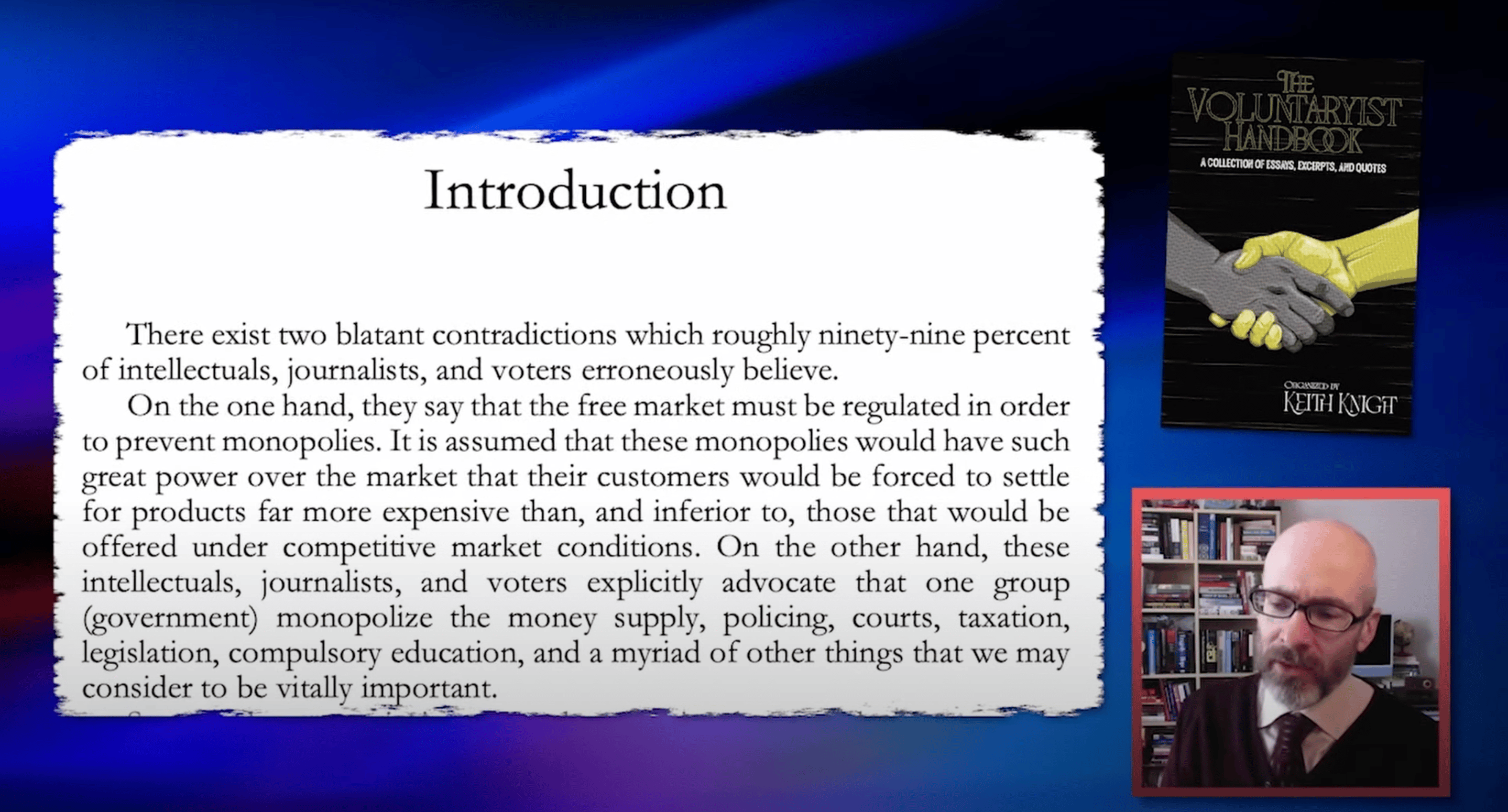There exist two blatant contradictions which roughly ninety-nine percent of intellectuals, journalists, and voters erroneously believe. On the one hand, they say that the free market must be regulated in order to prevent monopolies. It is assumed that these monopolies would have such great power over the market that their customers would be forced to settle for products far more expensive than, and inferior to, those that would be offered under competitive market conditions. On the other hand, these intellectuals, journalists, and voters explicitly advocate that one group (government) monopolize the money supply, policing, courts, taxation, legislation, compulsory education, and a myriad of other things that we may consider to be vitally important. Second, the vast majority of people recognize the moral legitimacy of the biblical commandments “Thou Shalt Not Steal” and “Thou Shalt Not Murder.” Yet, when it comes to the practices of taxation and war, these principles are blatantly disregarded by almost everyone. If taxation is not theft, why can only governments do such a thing? Why not simply allow all organizations, companies, clubs, churches, or individuals to issue taxes? It should therefore come as no surprise that governments are infamous for delivering poor quality. Imagine a restaurant where you had to pay regardless of whether they brought food to your table. Likewise, war is simply a euphemism for theft-funded mass murder, a blatant crime that we would never dismiss if non-government actors were to engage in it. What if justice required us not to have double standards? This book seeks to dispel the belief that morality applies differently to government employees. If it is immoral for me to do something — say, conscript people to perform labor against their will — how can I justifiably vote for a representative to do such a thing on my behalf?
Podcast: Play in new window | Download

































